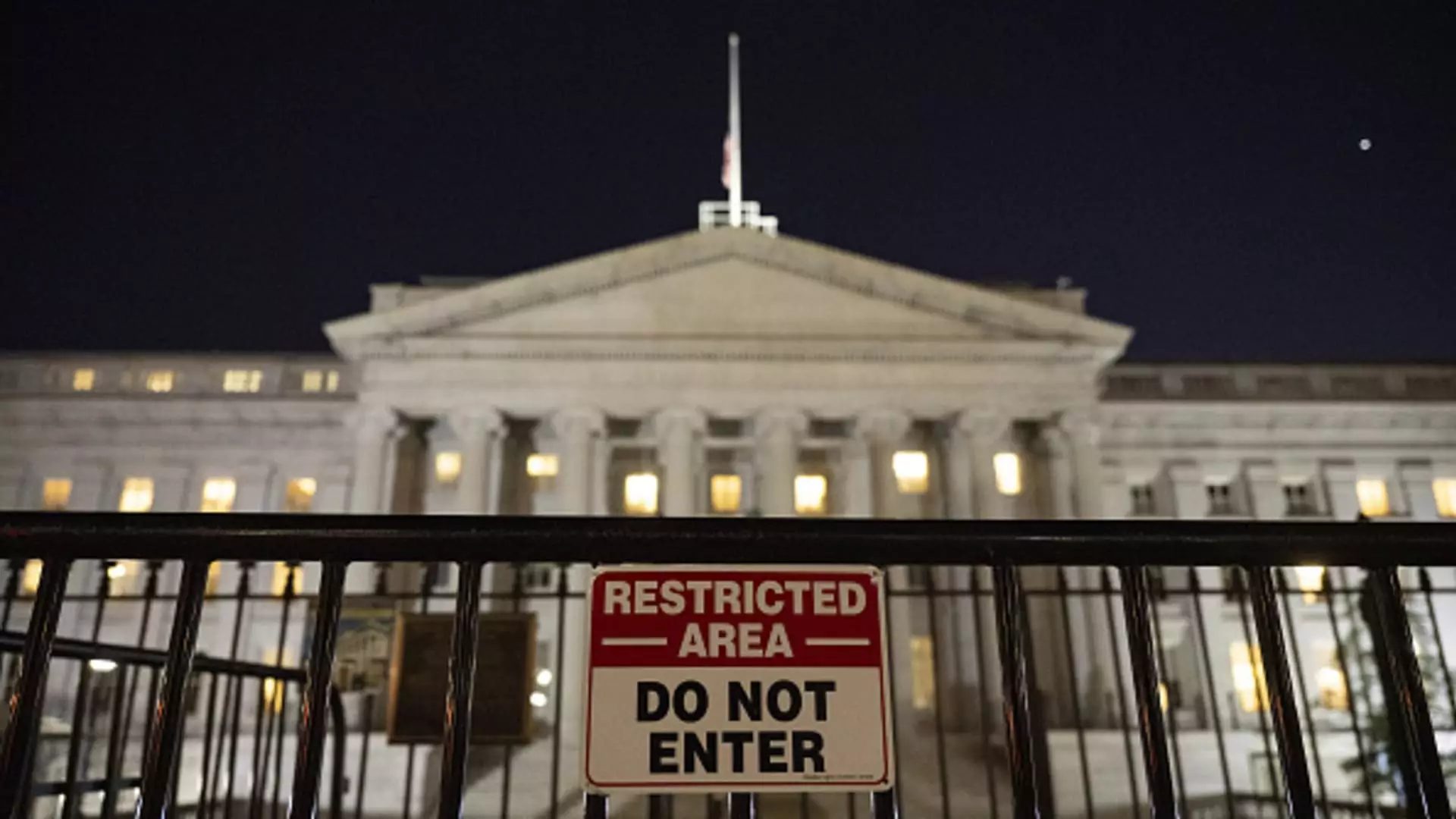In a troubling escalation of cyber warfare between the United States and China, recent reports have emerged detailing a significant breach by Chinese government hackers into the U.S. Treasury’s network. According to the Washington Post, these hackers successfully infiltrated several key departments, including the Office of Foreign Assets Control (OFAC) and the Office of Financial Research (OFR), as well as targeting Treasury Secretary Janet Yellen’s office. As revealed earlier this week, these nefarious activities resulted in the theft of unclassified documents, marking a serious threat to national security.
The U.S. government has remained tight-lipped regarding the specific ramifications of this breach. Although the Treasury Department acknowledged the incident in a letter directed at lawmakers, they withheld detailed information about affected users or further clarifications regarding the scope of the breach. This lack of transparency raises concerns about the integrity of sensitive materials within the Treasury and whether requisite precautions had been sufficiently enforced in the face of international cyber threats.
In reaction to these allegations, a spokesperson for the Chinese Embassy in Washington dismissed the claims as “irrational” and devoid of any factual support, suggesting that they represent a smear campaign against China. By asserting their commitment to combating all forms of cyberattacks, China seems intent on framing itself as a victim rather than an aggressor, complicating the international dialogue surrounding cybersecurity norms and behavior.
This breach comes at a time when U.S.-China relations are increasingly strained, chiefly due to ongoing tensions over trade, human rights issues, and military posturing in the South China Sea. Sanctions against Chinese entities have become a staple of U.S. foreign policy, reflecting the growing perception of China as a major geopolitical competitor. The recent reports indicate that the hackers were particularly interested in U.S. considerations for targeting Chinese entities with financial sanctions, underscoring the strategic motivations behind the breach.
Compounding the complexity of this situation is the involvement of third-party cybersecurity service provider BeyondTrust, which the Treasury acknowledged was also compromised. The infiltration of such external providers poses significant risks for government departments, as it highlights the increasingly interconnected nature of cybersecurity threats and the potential vulnerabilities these networks may harbor.
Amidst these events, Secretary Yellen’s recent statements about potentially sanctioning Chinese banks in the broader context of international efforts to reduce Russia’s revenue streams symbolize the heightened stakes surrounding the financial domain. As the U.S. continues to navigate these multilayered geopolitical challenges, the integrity of its financial systems remains paramount.
The breach of the U.S. Treasury by Chinese hackers reflects not only an immediate threat to national security but also signifies the broader implications of cyber conflict in international relations. As nations grapple with the realities of cybersecurity and its intersection with foreign policy, collaborative international frameworks will be necessary to establish norms and protections against such aggressive tactics. The evolving nature of state-sponsored attacks requires a dynamic and multifaceted approach to safeguard sensitive government information and uphold the integrity of financial systems worldwide.

Leave a Reply